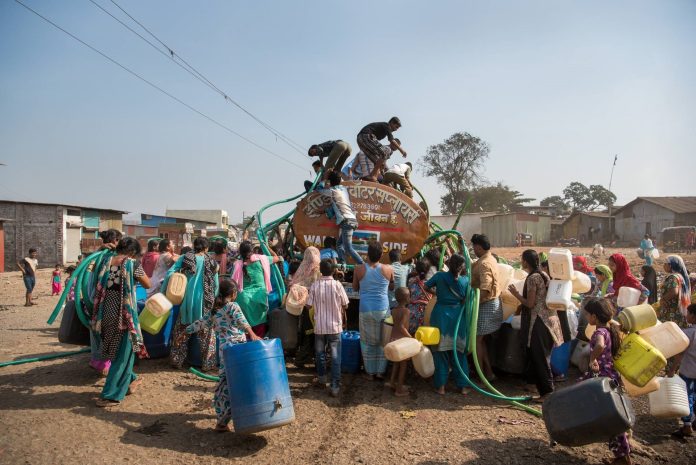- The prophecy of wise and evolved souls may come true shortly if humankind simply refuses to honor Mother Nature holistically. Reams and reams have been written on how several precious natural commodities are being misused by the present generation, which considers itself the most modern riding piggyback on mind-blowing technological advancements. Nature’s bounty for the benefit of humanity is not only intangible but also abundantly available. However, everything made available to us must be used judiciously without ever indulging in abusing the same. Whenever humanity falsely starts believing that they can conquer Mother Nature, brace up for upheavals that would make us realize how incapacitated we become with the onslaught.

PC: The Hindu
- As you are aware, water is one such natural commodity without which humanity cannot sustain for too long. We are aware the Earth is surrounded by 70% water courtesy of oceans. But what matters is the availability of potable water which is proving to be increasingly challenging for the global community. Several countries are in the grip of the potable water crisis and India as a country is no exception. We are largely an Agri-based economy dependent on the monsoon for Rabi and Kharif crops. If the monsoon rains play truant courtesy of erratic weather patterns on the back of rampant environmental degradation, the country faces a daunting task of mitigating several challenges forthcoming, especially the drinking water availability.
- Note that the IMD’s forecast of above-normal rainfall this year had come as a relief to all concerned in India. A good kharif season promised a let-up in food inflation and the easing of monetary policy to spur growth. Bountiful rains would also mean an end to heatwaves, which have tormented millions this year. Unfortunately, the southwest monsoon has lost some momentum in June. Experts say this is just a hiatus, and hopefully, it is true. But its late arrival in large parts of the country is going to delay the sowing of summer crops. It would also decrease the interval between kharif and rabi crops, among other things, leading to stubble burning in northwest India. Of particular concern in this contest is the low water levels in our reservoirs.

PC: East Asia Forum
- According to the Central Water Commission, total live storage in 150 reservoirs stood at just 2% of their live storage capacity last week. This was 79% of last year, which was 92% of the 10-year average. The situation was especially alarming in the south, where the figure was just 14% of total storage capacity. Low reservoir levels will impact the hydropower generation, which peaks in the season. Poor monsoons last year had taken a toll on hydro output, which touched a low last fiscal. It also raises fears of a more drinking water crisis, something that cities like Bengaluru and Delhi have faced this year. Further, unless reservoir levels go up, there will be less water for the rabi crop, which is critically dependent on irrigation. Water should be used with utmost care.






